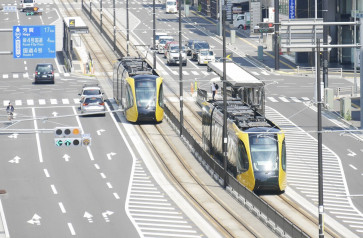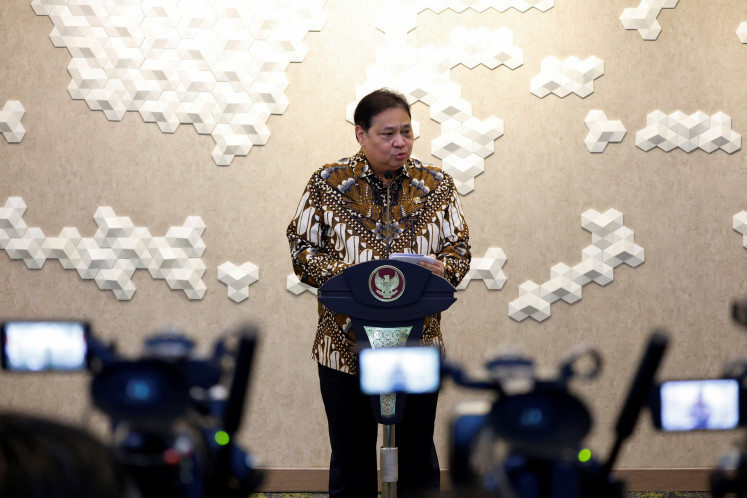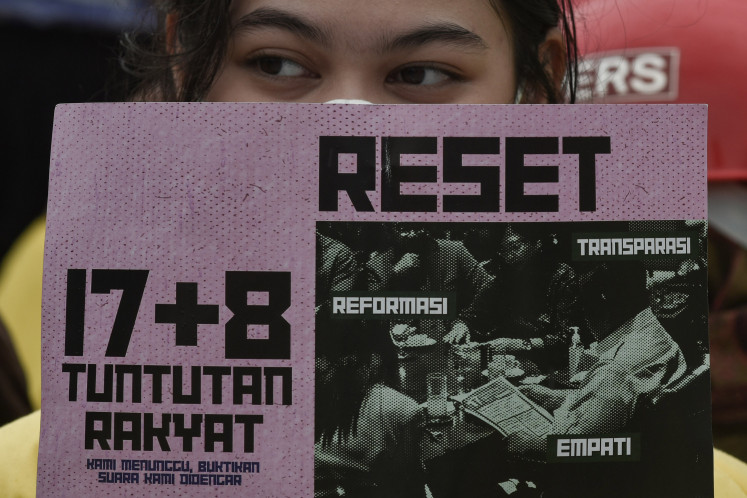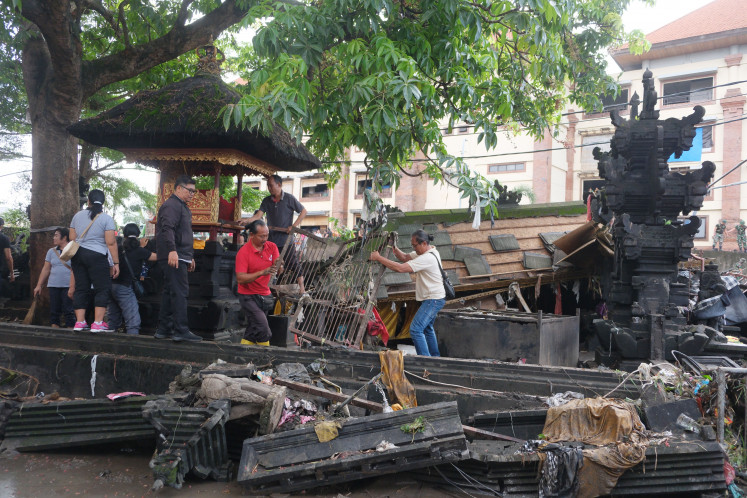Popular Reads
Top Results
Can't find what you're looking for?
View all search resultsPopular Reads
Top Results
Can't find what you're looking for?
View all search resultsAsia taming the cycle of conflict and misery
The world today seems rife with conflict and catastrophes, both natural and man-made, and governments and international institutions are rightly focused on people’s needs caught in these events
Change text size
Gift Premium Articles
to Anyone
T
he world today seems rife with conflict and catastrophes, both natural and man-made, and governments and international institutions are rightly focused on people’s needs caught in these events.
What we must grasp at this potentially historic time is that we can, and must, take steps right now to break the cycle of conflict and instability — or run the risk of even broader and longer-lasting unrest — which will lead to dire social and economic developmental impacts.
People living in areas affected by violence, for example, are three times more likely to be in poverty and twice as likely to have no access to schools, affecting women and children in particular, and hence the future.
The goals are straightforward and obvious to many of us. Provide more jobs to give people hope for the future, both for themselves and for the next generation.
Provide for their personal safety and security from crime and terrorism. Ensure that they can turn to a fair and effective justice system.
What is less obvious is how a country immersed in civil war or facing a daunting task of rebuilding after a natural disaster can achieve these objectives. The World Bank has created a global road map through the publication this month of its latest World Development Report, focusing on “conflict, security and development”.
It stresses the roles that effective institutions need to play at local, national, regional and international levels. It highlights that the often courageous and determined reformers at the community level need to be able to rely on help from those inside and outside their country to improve citizen security, ensure justice and deliver jobs. And the help should be reasonably sustained.
The Report also points to past achievements to show what can be done, and Asia itself can be a showcase for those who want to break the cycle of joblessness, despair and conflict.
The necessary combination of local initiative, national and regional assistance and global support is evident in the restoration of stability in Timor Leste since the establishment of the peacekeeping mission there in 1999.
It has also been showcased in the responses to the horrific disaster that befell Aceh and to cyclone Nargis in Myanmar three years ago.
In all three instances, the Association of Southeast Asian Nations or ASEAN played a regional role that addressed cultural sensitivities, smoothing the path for outside assistance. We’ve seen exceptional commitment of ASEAN Member States in contributing to the response.
In Myanmar, talks between the government and ASEAN paved the way for international aid and technical assistance from the World Bank, among others, to reach devastated areas of the country that took the lives of over 130,000 men, women and children.
ASEAN also helped bring in technical assistance teams from the European Union to Aceh to help people begin rebuilding their lives.
ASEAN’s experience also serves to reassure that regional groups like these are developing greater capacity with each experience of peacekeeping or disaster relief.
In Timor Leste, the peacekeeping mission was made possible by long years of joint training and exercises between the armed forces of ASEAN, particularly the Philippines and Thailand, financial support of Japan, and close cooperation with the greater region — in particular with South Korea, Australia and New Zealand.
In its effort to help Myanmar after cyclone Nargis, ASEAN was able to draw on experienced personnel from ASEAN Member States.
What ASEAN’s experience has shown, and what the 2011 World Development Report illustrates, is that an alliance of local, national, regional and global groups can help build the strong institutions that are essential to providing citizen security, justice and jobs.
We must be prepared to act quickly if we are to prevent new spirals of violence and conflict when they emerge, either because local institutions have been allowed to fail through poor governance or they have been weakened or even destroyed by natural disasters.
These three issues — security, justice and jobs — lie at the heart of the unrest we are now seeing most spectacularly in the Middle East and North Africa, regions with grim employment picture, particularly for youth and for women.
If we are to convince today’s youth that there is a brighter future, then we need to help build the institutions that will educate them, help them find work, protect them from harm and provide them with the public services those in wealthier, more secure countries take for granted.
We have seen the results of failure. The use of child soldiers in Africa and Asia. The specter of terrorism taking seed in failed states. But we have also seen success that should make us all the more determined to break this cycle.
We see it in a lasting peace and reconstruction and reconciliation in Timor Leste. We see it in Myanmar where the door has been opened a little to outside help. And now the world has the chance to show it has learned from the past that we recognize the need to provide assistance to rebuild a country’s judicial system or support jobs programs rather than provide arms and military might.
The World Development Report warns that real rebuilding can take almost a generation. Events today should make it clear that people living in war zones and disaster areas simply cannot wait.










